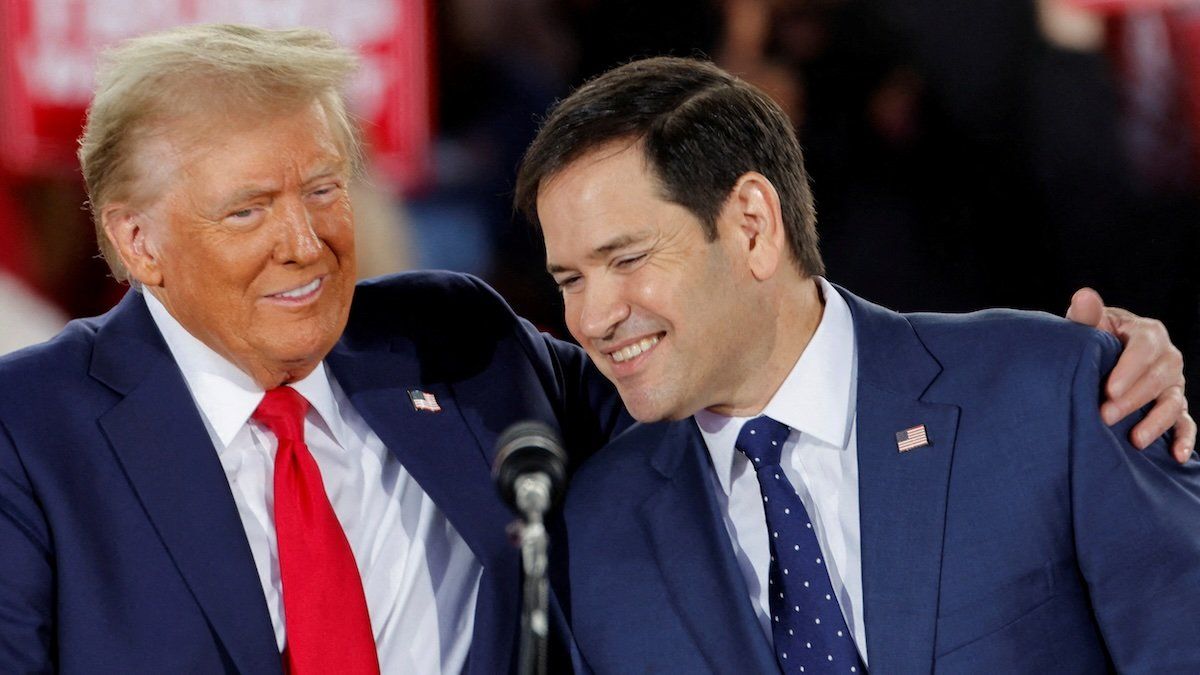Donald Trump’s second administration is rapidly taking shape. The president-elect has tapped a number of hardliners and loyalists for Cabinet roles and other key positions, offering a partial glimpse of what his biggest priorities will be post-inauguration.
Based on his picks so far, immigration will be at the top of Trump’s agenda as he appears poised to follow through with his campaign promises on this issue — including mass deportations and closing the border. Tom Homan, who served as acting ICE director in Trump’s first administration and oversaw the controversial family separation policy, has been chosen to serve as “border czar.”
Trump says Homan will be “in charge of all Deportation of Illegal Aliens back to their Country of Origin.” Homan is an “immigration hawk” who is “very much in line with Trump’s worldview,” says Clayton Allen, Eurasia Group’s US director.
The president-elect is also expected to select Stephen Miller as deputy chief of staff for policy, a move that “really elevates immigration as a key policy focus,” says Allen.
Miller, who helped shape Trump’s immigration policies in his first term, is a fervent supporter of mass deportations. “America is for Americans and Americans only,” Miller said at a rally for Trump at Madison Square Garden in late October.
Trump on Tuesday officially announced that he's picked South Dakota Gov. Kristi Noem, who has also echoed his hawkish rhetoric on immigration, to be Homeland Security chief. “Kristi has been very strong on Border Security,” Trump said, adding that she would work closely with Homan to secure the border.
Trump’s foreign policy team is also coming together — and he’s moving to fill it with China hawks. He selected Rep. Mike Waltz, a Green Beret veteran, to be his national security adviser. He’s also reportedly set to pick Republican Sen. Marco Rubio to be secretary of state. And Trump on Tuesday announced that he's chosen John Ratcliffe, a loyalist who served as director of national intelligence in Trump's first administration, to be CIA director. All three are outspoken in their support for the US taking a hardline stance in its approach to China, which falls in line with Trump’s tough talk toward Beijing.
Rubio has expressed support for negotiating an end to the war in Ukraine. But he’s also a proponent of maintaining alliances and could serve as a counterweight to isolationist voices in Trump’s circle on some issues.
“Rubio is going to advocate for something a little bit closer to what you would expect traditional Republican orthodoxy on foreign policy to be. He’s certainly a bigger fan or a bigger supporter of NATO than some other people in Trump’s orbit,” says Allen, while cautioning that he will still only be one voice in the room.
Rubio is also known for his hawkishness when it comes to Iran, Cuba, and Venezuela — and could make Latin America a much bigger priority for Trump 2.0. Tapping Rubio “suggests that Trump is going to take a more direct interest in Latin American policy this time around,” says Allen.
The Florida Republican was “basically the Secretary of State for Latin America in Trump's first administration,” says Allen, adding that Rubio’s huge interest in Venezuela will elevate the country as a foreign policy consideration for Trump.
GOP Rep. Elise Stefanik, Trump’s pick for US ambassador to the UN, is “harder to pin down,” says Allen.
“She's been very adroit at elevating herself, but that’s created this sort of inconsistency in the policy she’s advocated for. It’s a little hard to know where she’s going to land,” adds Allen. “I think that ultimately she’s best thought of as someone who’s going to try to implement Trump’s policy, whatever it will be. But I don’t know that she’s going to have that heavy of a hand in actually setting the policy.”
Trump on Tuesday also announced that he's picked Fox News host Pete Hegsethto be defense secretary. Hegseth is an Army veteran who served in Afghanistan and Iraq but lacks government experience, and this unorthodox choice is already facing major questions.
We’ll be watching to see who Trump taps for other crucial roles, particularly treasury secretary, as the president-elect has made a number of controversial trade proposals — including threats to impose tariffs on allies and adversaries alike.
